| Further Reading | The 4 Most Important Documents In The History Of The U.S |
Of the millions of men throughout history several have stood the test of time as being the most influential. Of these millions I have chosen 10 who continue to have an impact in the modern day. Without these men our modern world would look completely different.
From the following list of the top 10 most influential men of history I have omitted religious figures due to their impact being difficult to gauge.
The absolute top 10 most influential men of history are the following.
- Aristotle
- Alexander The Great
- Cicero
- Genghis Khan
- Confucius
- Al-Khwarizmi
- Voltaire
- Albert Einstein
- Isaac Newton
- Augustus
Here at The History Ace I strive to publish the best history articles on the internet. When appropriate I give links to academic sources to verify statements. There is a free newsletter you can sign up for to remain up to date on all things history
Without further ado, let’s jump into the absolute top 10 most influential men of history.
1.) Aristotle
| Born | 384 B.C, Greece |
| Died | 322 B.C, Greece |
| Famous Quote | “Knowing yourself is the beginning of all wisdom.” |
| Reason for fame | Changed the way we observe the world and pursue knowledge |
| Area Of Influence | North America, Europe, Asia, Africa |
| Further Reading | 5 Ways Aristotle Changed The World |
Aristotle was a 4th-century philosopher and academic from Greece. Over the course of this man’s life he would change the way the world approaches intellectual problems.
Aristotle was known for his ability to rationally think through a problem and explain it easily to others in a convincing manner. While not all of his teachings are correct the method by which he tested his theories still stands today.
We call it the scientific method and it has dictated the growth of knowledge, technology, and academics to this day.
So great were the writings of Aristotle that even during the 4th century BC they would begin to spread across the world. We as historians know this because after the ‘dark ages’ the Arabic scribes who copied Aristotle reintroduced him to us.
Aristotle’s influence can be felt across the world today. He is known for starting several key fields of research such as political science, physics, mathematics, astronomy, and rhetoric.
Today we can thank Aristotle for things such as nations, political speeches, universities, technology, philosophy, and the scientific method. There is not one person alive today that has not been impacted by these advancements in humanity.
Because Aristotle has impacted the lives of every single living person in the world today he stands as number one on our list of the top 10 most influential people of all time.
2.) Alexander The Great
| Born | 2oth July, 356 BC |
| Died | 10th of June, 323 BC |
| Famous Quote | “I am not afraid of an army of lions led by a sheep; I am afraid of an army of sheep led by a lion.” |
| Known For | Connecting the west and east, spreading culture and knowledge, a great general. |
| Area Of Influence | Greece, Rome, Italy, Europe, India, Persia, North Africa |
| Further Reading | The 3 Biggest Ways Alexander The Great Impacted The World |
During the same time as Aristotle one of the greatest generals of history would emerge. This man is named Alexander The Great and not only was he a great general but he was taught by Aristotle.
However, Alexander would forge his own destiny. Upon his ascent, to the throne of Macedon he would unite all of Greece into one singular force and march to the east conquering lands that stretch from modern Bulgaria to India.
Being just a great conqueror would not be enough to land him on this list however. Alexander’s legacy comes from three things: first, is the joining of the west and east. Second, is spreading Hellenistic thought and culture. Third, is advancing military tactics still used today.
By uniting the lands of Persia, Greece, Egypt, and India Alexander would allow easy intercontinental trade for the first time in history. This means that merchants in Athens could easily trade goods and knowledge with the lords of India.
Out of this comes the spread of Hellenistic culture and knowledge. Aristotle’s teachings would spread far and wide along with other traditional aspects of Greek life. Today we can see Greek pillars and culture as far as portions of eastern China.
The reason behind Alexander’s success comes from his military tactics which used rapid flanking maneuvers and quick attacks. This gave his opponent little time to react and as such Alexander never lost a battle. Since the time of Alexander all major militaries use this strategy of rapid deployment, mobility, and attack. In this case, Alexander’s strategy changed the course of military history.
3.) Cicero
| Born | January 3rd, 106 BC |
| Died | December 7th, 43 BC |
| Famous Quote | “In times of war, the law falls silent.”-Pro Milone |
| Reason For Fame | Pioneered natural law, liberty, free market, and the three branch system of government. |
| Area Of Influence | Europe, Rome, North America |
| Further Reading | 3 Ways Cicero Influenced The Development Of Democracy |
During the height of the late Roman Republic an orator, philosopher, lawyer, writer, and politician named Cicero existed.
Cicero lived through the transition of the Roman Republic into the Roman Empire. Writing about the nature of government and its purpose, Cicero in many ways created the concept of modern government today.
Cicero was the first philosopher to build a government around the concept of natural law, or that governments are a natural phenomenon built for the protection of the people. That people sacrifice their natural liberties to create a government that supports them.
As you might expect, Cicero was not a popular figure in the new authoritarian government such as the early Roman Empire. While he did not live much longer his writings have been preserved for future generations.
Today it is because of Cicero that the governments of the world hold elections, have chambers, constitutions, free markets, and have stable courts of law.
4.) Genghis Khan
| Born | 1155 AD |
| Died | 1227 AD |
| Famous Quote | “Everything is temporary.” |
| Known For | Conquering Asian Steppe/Asia, the largest empire, progressive governance policies for the time, fostering the development of trade and academia. |
| Area Of World | Greater Asia Region |
| Further Reading | The 3 Biggest Impacts Of Genghis Khan |
In the 12th century, a man would rise to power across the Mongol steppe. This man’s name was Genghis Khan and at one point he would come to create the world’s largest empire.
For the west there is Alexander The Great, for the east there is Genghis Khan. Much like Alexander, just being a great conqueror is not enough to be on this list. It was the policies of Genghis Khan that marked him as one of the most influential men of all time.
Genghis Khan would unite the east and west allowing for drastically easier trade and transmission of ideas. This allowed the ideas, technology, and literature of the far east to make its way to Europe and begin the renaissance.
Great European minds such as Leonardo Di Vinci are known today because of this opening of trade between the east and west.
Further, Genghis Khan would institute drastically progressive policies across Asia at the time. Examples of this is a societal promotion system based on meritocracy and not lineage and the freedom for his subjects to practice any religion. For the 12 century, this was unheard of.
Because of the great Khan’s policies the east would begin to consolidate in the following centuries to become a powerhouse of trade, culture, and economic might. Several of the greatest inventions would come out of this lasting consolidation of power that continues to impact us today.
Genghis Khan’s influence has impacted billions of people ranging from the Russian steppe to the lowlands of China. Further, the practice of religious freedom allowed for a cultural explosion.
5.) Confucius
| Born | 551 BC |
| Died | 479 BC |
| Famous Quote | “It does not matter how slowly you go so long as you do not stop.” |
| Known For | Forming the basis of east Asian philosophy, political science and sociology. |
| Area Of World | East Asia, China |
| Further Reading | 3 Ways Confucius Impacted The World |
The west has Aristotle, the east has Confucius.
Writing in the 5th century BC Confucius formed the basis of east Asian philosophy. Unlike the western style of government Confucius would form an ideal government built from the ground up on the concept and idea of unwritten humanistic moral codes.
Because of this Confucius’s legacy consists of three things: First, the creation of a humanistic governing ethical code. Second, Creation of an ethnically driven proto-democratic state. Third, A massive bolstering of the arts across the east.
Confucius’s humanistic governing ethical code places the ruler of society as the most morally correct person. Their subjects would in turn emulate this moral code which would allow for an incredibly strong state.
Out of this humanistic governing ethical code would come the ability for the people to overthrow their ruler if they became unworthy in the eyes of the people. Another ruler would be imposed who was ethically the peoples better. This allowed for a proto-democratic state to exist.
Finally, the way this ruler would interact with the people and see their problems would be through the medium of art. The people would create art that could criticize the ruler and demonstrate their everyday problems. The ruler in turn would observe this art and reflect.
This style of philosophic government is iconic to Confucius. Further, across Asia this style of government would dominate everyday life. Out of this we see the rise and fall of Empires and an explosion of art which to this day still impacts billions of people across Asia.
6.)Al-Khwarizmi
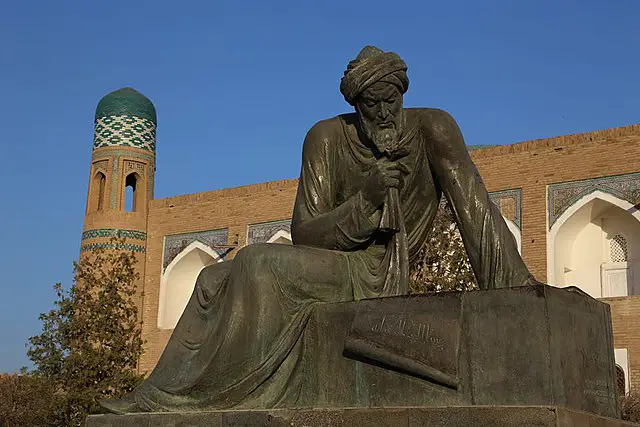
| Born | September 14th, 786 |
| Died | August 7th, 833 |
| Famous Quote | “When I consider what people generally want in calculating, I found that it always is a number.” |
| Known For | Inventing modern algebra, fusing Hindu and Arabic numerals to create modern numbers. |
| Region Of World | Early middle ages middle east (modern Iran, Turkmenistan, and Uzbekistan) |
| Further Reading | 3 Ways Al-Khwarizmi Changed The World |
When it comes to mathematicians there is none more influential than the 8th century Al-Khwarizmi, or as his Latin given name of Algorithmi.
Living in Baghdad during the 8th and 9th centuries Al-Khwarizmi would see an influx of knowledge coming from both Europe and India through the house of wisdom in Baghdad. Out of this transmission of ideas and knowledge would be the manuscripts detailing mathematics.
However, Al-Khwarizmi noticed that the mathematics of his time were inherently constricting. In order to properly calculate a problem a mathematician would have to use an abacus, a large device that took forever to perform even a simple calculation.
The reason for math being cumbersome was because of how limiting numbers were at the time. Both the east and the west had differing concepts of numbers. Al-Khwarizmi would combine these concepts and create his most lasting influence on the numbers of 1,2,3,4,5,6,7,8,9,10 or the Latin-Arabic numeral system that we use today.
This alone was not enough for Al-Khwarizmi; he had to demonstrate its effectiveness. So Al-Khwarizmi invented a method of easily calculating equations that today we call algebra.
Armed with a new number system and algebra, Al-Khwarizmi would further go on to study the stars and create accurate world maps.
All of these accomplishments laid the modern foundation for mathematics and science. For this Al-Khwarizmi stands as the most influential mathematician of all time as every field of science, math, and technology interacts with his knowledge.
Because of this Al-Khwarizmi stands as one of the most influential men of all time.
7.)Voltaire
| Born | 1694, Paris, France |
| Died | 1778, Paris, France |
| Famous Quote | “The mirror is a worthless invention. The only way to truly see yourself is in the reflection of someone else’s eyes.“ |
| Reason For Fame | A prolific writer in support of democratic principles who pushed the west towards democracy. |
| Area Of Influence | France, England, North America |
| Further Reading | 3 Ways Voltaire Changed The World |
The most influential writer of the modern era is not Shakespeare with his plays but rather it is Voltaire with his fearless critiques of society.
Living in 18th-century monarchist France Voltaire would write critical reviews of European society, nobles, and traditions.
Due to this Voltaire over the course of his life would be jailed, ridiculed, and attacked by those in power. However, Voltaire would continue to write about one thing in particular. The power of democratic principles in society.
Not only did Voltaire write well but he wrote a lot. His entire collection of written works spans 2,000 books and 20,000 letters all centered around society and the place of power within it.
Voltaire is responsible for pushing the west out of authoritative governments such as monarchies and into democratic governments that span across the world.
So powerful were Voltaire’s writings that academics have come to call the 18th century the Age of Voltaire. This is because Voltaire would push the west into democratic revolutions that ranged from Russia to North America all of which were cited to some degree in Voltaire’s written work.
Today billions of people live in democratic governments and have liberties such as freedom of religion due to the writings of one man who wrote nonstop about democratic principles.
8.)Albert Einstein
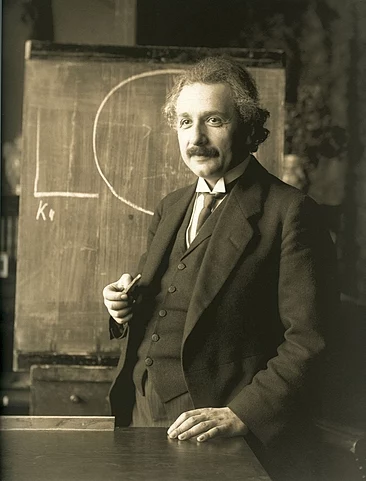
| Born | 14th of March, 1879 |
| Died | 18th of April 1955 |
| Famous Quote | “Life is like riding a bicycle. To keep your balance, you must keep moving.” |
| Known For | Creating theory of relativity, unlocking the atom, gravity waves |
| Area Of Influence | Europe and United States |
| Further Reading | 3 Ways Relativity Changed The World Forever |
Out of all the scientists in the world Albert Einstein is top of the list when it comes to influence. This 20th-century physicist would write about one thing his entire life, the concept of relativity.
Before Einstein, the world had separate powers which each existed in their own sphere. Gravity was not affected by light and matter was not impacted by the flow of energy. Each was studied individually.
Einstein changed all of that with the general theory of relativity. This theory linked all matter and energy in the universe together and unlocked the power of the cosmos for humanity to explore and wield.
Einstein has 3 lasting impacts that cause him to be on this list. First, is the discovery of relativity. Second, is the discovery of atomic energy. Third, the discovery of spacetime.
Since the theory of relativity linked matter, gravity, and energy together then you could diffuse it as well. This means that in theory, you could split the atom into pure energy. Out of this would come a nearly infinite amount of energy. Today we call this nuclear power and it comes from Einstein.
While splitting the atom is a massive influence it would be the discovery of spacetime that would cement Einstein’s lasting legacy. Spacetime is when both space and time are linked together and much like the atom we could split this to bridge either space or time.
Humanity is still discovering more about how Einstein’s theories are impacting the world. For example, 100 years after Einstein published his general theory of relativity scientists in 2016 discovered that this spacetime does exist in the form of gravitational waves.
Einstein continues to impact billions of people across the world and for this reason he is on our list as one of the most influential men of history.
9.)Isaac Newton
| Born | 4th of January 1643 |
| Died | 31st of March 1727 |
| Famous Quote | “I can calculate the motion of the heavenly bodies but not the madness of people” |
| Known For | Creating modern calculus, advancing optics, creating a modern theory of gravity. |
| Region of World | England, 17th-18th century. |
| Further Reading | Isaac Newtons 3 Biggest Impacts Upon Society |
Up until Newton the main academic theories everyone learned was Aristotle who lived nearly 2 millennia before.
Newton from an early age was inquisitive and competitive in his studies. He would routinely strive to outperform all the other boys in his academic pursuits.
Of all the character traits that highlighted Newton the main one that would propel him was a stubborn attacking of whole academic fields as a whole.
In his first publication On analysis by infinite series Newton attacked the entire field of mathematics by demonstrating that their concept of logarithmic functions was flawed. He recommended a change. Then he sent this paper to all the major mathematicians at the time.
Naturally, this paper was not published. However, it did catch the eye of Isac Barrow who referred to Isaac Newton as a man of “extraordinary genius and proficiency in these things.”
With this Newton would go on to create modern calculus with his binomial theorem. Using this new form of calculus Newton would be able to observe and calculate the properties of light which in turn led him to discover that gravity was an effect of an increase in matter attracting a smaller form of matter.
Because of this Newton’s legacy is composed of three things. First, is his creation of the field of calculus. Second, is his advancement in the field of optics. Third, he is considered the father of modern gravity.
Today whenever a person interacts with a computer, phone, light, or falls down they can thank Newton. Without him it’s doubtful we would see a world of computers, telescopes, or cars.
10.) Augustus
| Born | 23rd September, 63 BC |
| Died | 19 August, 14 AD |
| Famous Quote | “Practice, the master of all things.” |
| Known For | First Emperor of the Roman Empire, Taxation based on population, creation of many civic liberties. |
| Area Of World | Europe, Italy, Rome |
| Further Reading | 3 Greatest Accomplishments of Rome’s First Emperor. |
At one point in history, one man had a net worth of $4.6 trillion dollars, he was the first emperor of the Roman Empire and his name was Augustus.
Money alone does not constitute a reason to be on this list. It would be the lasting impact of unifying than the world’s most powerful state. The Roman Empire would come to advance engineering, science, and literature in ways that the world has not seen since.
However, what Augustus did was set the Roman Empire on that path. He is known for imparting 3 lasting influences that have continued up until the modern day.
These 3 influences are the creation of a city civil service protection force, the creation of the world’s first proto-nation, and the creation of the world’s first modern economy.
Rome during the Republic had one enemy that plagued the city. This was the enemy of fire. Fire destroyed Rome countless times and was more feared than any enemy. Augustus upon becoming emperor created a city-run fire fighting service that also served as a police force to ensure peace and growth.
When Augustus died he had successfully unified all of the Roman provinces into one state under an emperor. To do this he had to convince the people in the provinces they were Roman, and this was done through the spread of Roman culture by state-sponsored artists such as Livy, Ovid, Horace, and Virgil. In essence, Augustus laid the foundation for all nation-states to develop.
In order to build this new nation Augustus would have to drastically change the way the economy ran. During the Roman Republic, each province had to pay a tax in the form of material wealth often given to a senator. This caused massive economic inefficiency as the senatorial elite of the Republic would take a portion of the wealth for themselves.
Augustus would streamline this process and create a currency system that spanned the empire. Further, Augustus would build into this new economy a social security system and pension system to provide for the old and veterans of the empire.
To this day these policies are handed down across the world and all nations can thank Augustus for his efforts to create a primitive Roman nation.
Conclusion
There you have it, an entire article on the absolute top 10 most influential men in history. It is hard to quantify a list of this caliber but I looked at how each actor’s effects have rippled through the ages of history.
Several other honorable mentions of influential men would be: Abraham Lincoln, Thomas Jefferson, Claudius, Constantine, John Locke, Qin Shi Huang, Abd ar-Rahman I, George Washington.
Here at The History Ace I strive to publish the best history articles on the internet. Feel free to sign up for the free newsletter to remain up to date on all things history.
Further, you can check out some of the other articles below.
-
How The American Revolution Changed The World
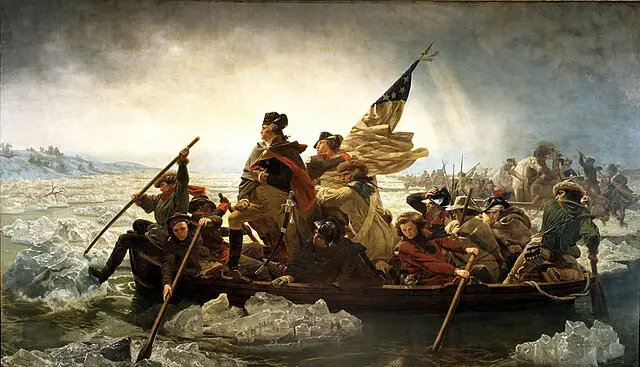
Here is how the American Revolution changed the world. Many people are not aware of just how important this event actually was.
-
Why The Roman People Loved Chariot Racing
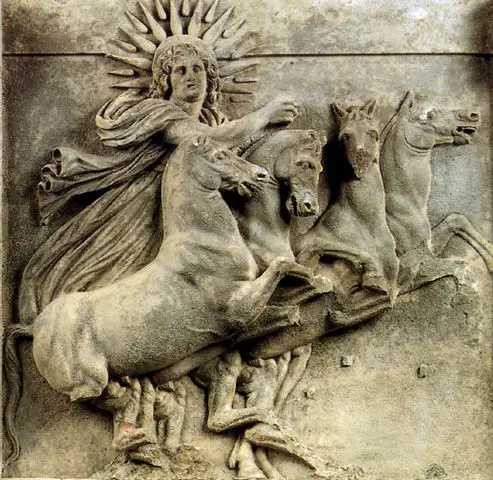
Why did the Roman people love chariot racing? Well it all comes down to these 3 reasons.
-
The Design and Color of Roman Chariots
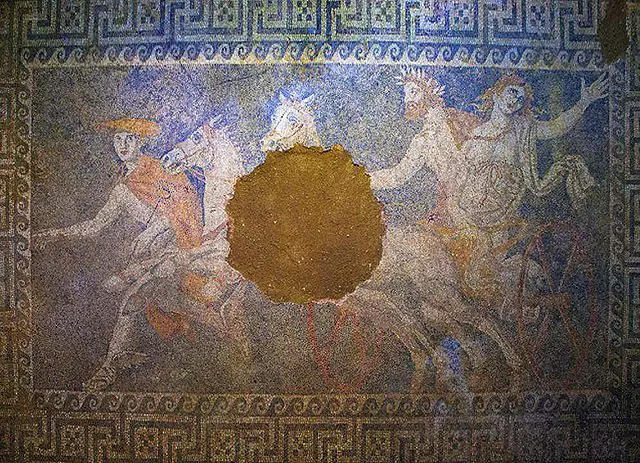
What was the design and color of Roman Chariots? Were they faster or slower then normal chariots? Well here is everything!
Until next time, I hope you continue to enjoy history as much as I do.
Sincerely,
Nick